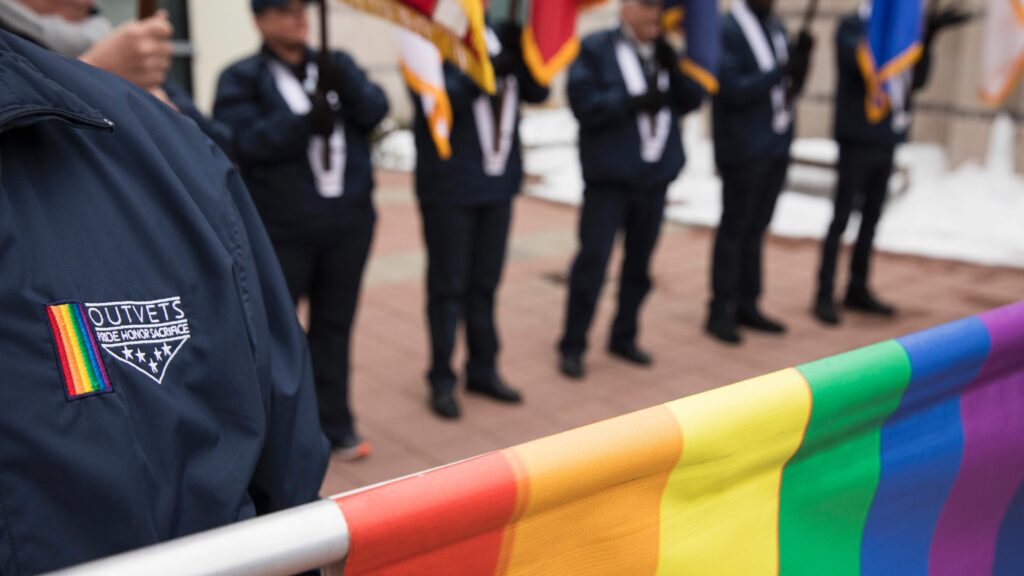The Defense Department on Thursday abruptly reversed course on funding a study of LGBTQ+ veterans that had been recommended late last year, saying it “was not in line” with one of President Trump’s executive orders.
The move comes as health researchers anxiously await word on future and existing grants amid orders given to several federal agencies to comb research grants for taboo words relating to diversity and sexual identity.
advertisement
The $1.4 million, four-year grant from the Defense Health Agency was to be awarded to Jace Flatt, an associate professor at the University of Las Vegas, Nevada School of Public Health to study LGBTQ+ veterans and their risk for dementia, and also the challenges they and their caretakers face in accessing care and resources. It’s an area that has been largely understudied, he told STAT, despite the fact that studies show both veterans and LGBTQ+ people have higher risks for dementia.
Flatt was informed the project was to be funded in November and was negotiating the final details of the grant, but on Thursday received an email reversing that decision. “During the final stages of the negotiation process, it was determined this proposal was no longer in line with Executive Order (EO) 14168: Defending Women from Gender Ideology Extremism and Restoring Biological Truth to the Federal Government,” stated the letter.
“They said it was funded, and then we got this letter today,” said Flatt, who was upset, but not surprised by the decision given how outspoken the administration has been about LGBTQ+ issues and the use of federal dollars to study them. “I was just basically waiting for it.”
advertisement
Representatives of the Defense Health Agency did not comment late Thursday but said they would respond to STAT’s query about the decision later. The agency, which is part of the Department of Defense, manages the health of active duty military and retirees and also conducts health research. Agency representatives, Flatt said, had earlier told him they were pleased to fund the project. “They said the area hadn’t been studied before and they were incredibly excited for the knowledge gain,” said Flatt, who emphasized he was speaking for himself and not his institution.
The project, which was open to all veterans but focused on LGBTQ+ veterans because they are so understudied, was a national study with sites in Nevada, Tennessee, Alabama, and Georgia. It funded the work of graduate students and also several employees, including resource coordinators and managers — many of whom will now lose their jobs.
“I’m going to have to lay people off in the near future,” Flatt said.
Flatt said he was most upset because of the years of planning that went into the grant and because he and other investigators had worked so hard with LGBTQ+ coordinators at VA hospitals and community members to plan their study. “This was going to be really unique and really be welcoming to the veteran community,” he said.
Flatt said he had been worried about the grant in recent weeks, so had been staying in touch with his congressional representatives. He now plans to see if those leaders might help get the grant restored since the money was coming from the Congressionally Directed Medical Research Program.
He said he was unsure if the research would be protected by current lawsuits seeking to halt the various Trump executive orders, but said he posted the letter informing him of the decision on social media to raise awareness. “This was a way to resist,” he said. “The reason I put it out there was so others could see what is happening.”
He said it was becoming increasingly clear that research on LGBTQ+ people was coming under attack. He had been scheduled to participate in an NIH study section to review grants this week but quit after he was told that sex, gender, race, or ethnicity could not be used to consider grants. “I refused with all my being to have my intellectual contributions abide by an ideology that insists on erasing people,” he said.
advertisement
That decision from NIH officers was later rescinded but Flatt said he did not return to the study section. “I don’t trust when it comes time to fund grants, they won’t enforce that ideology,” he said. “This is not what science should be about.”
For now, he’ll look for alternate funding to continue his research. “I’m not going to give up,” he said.

